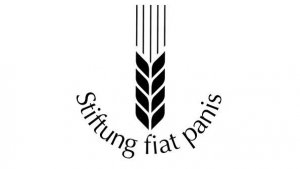Bookmark this HERMANN EISELEN-SCIENCE AWARD

The Foundation fiat panis supports young scientists whose work focuses on helping to reduce hunger and malnutrition in developing countries. From 1986 to 2009, the Eiselen Foundation awarded the science prize every two years, since 2010 the Foundation fiat panis succeeded with awarding the prize.
Until 2020, the prize was named after Prof. Dr. Josef G. Knoll (1899 - 1976). In 2021, we learned of Prof. Knoll's membership in the SS. All committees of the Foundation fiat panis distanced themselves from Prof. Knoll due to the current findings about his activities within the SS during the Nazi regime by renaming the science award named after him as a visible sign.
The science award of the Foundation fiat panis will from now on bear the name Hermann Eiselen-Science Award. This will honour the founder, make his person more visible and highlight his engagement to promote scientific work in the field of food security.
The objective of the award is to encourage young academics whose research concentrates on solutions to mitigate hunger in countries with food deficit. The research findings must be user-oriented and suitable to contribute towards
- improving the status of food and nutrition security of a certain local population,
- reducing the impact of hunger (undernutrition and malnutrition).
Eligible are individuals under the age of 40 and teams whose members have not reached their 40th birthday by the application deadline, providing they have successfully completed a doctorate at an European university. Application and awarding takes place in even years ie 2022, 2024, 2026, etc. The award will be issued throughout Europe and is endowed with 30,000 Euros.
Since 1986, 68 award winners have received a total of 450,000 Euros.
Dr. Hermann Eiselen was born in Nagold, Germany in 1926. He studied economics in Stuttgart and Heidelberg and was awarded his PhD in 1951 at the University of Goettingen. After a 9-months stay in the United States, he joined the family business (food industry – manufacturing of bakery supplies) in 1954 as managing director and developed it successfully. In 1980 before the business was sold, he employed almost 500 people. Together with his father, Dr. h. c. Willy Eiselen (1896 - 1981), Dr. Hermann Eiselen was co-founder of the Father and Son Eiselen Foundation (1978). He was chairman of the Foundation until June 2001. In numerous essays, lectures and speeches, he increasingly devoted himself to the questions of world nutrition, food security and the overcoming of poverty. He stressed the prominent role of agricultural research in the reduction of hunger and poverty in developing countries.
Influenced by own hunger experiences after the Second World War, it was an obligation to Dr. Hermann Eiselen that the German civil society is fighting against hunger in the world. Thus, he translated the slogan of the international Organization for Food and Agriculture (FAO) "Fiat Panis" into German and formulated the demand "everyone should have enough food", with the emphasis on "everyone".
For many years, the Eiselen Foundation was the only foundation in Germany dedicated to the improvement of world nutrition and reducing hunger in the world. The tasks of supporting research and awarding science awards have been continued since 2010 by the Foundation fiat panis, which was created by Dr Hermann Eiselen in 2001.
Dr. Hermann Eiselen has been widely honored for his work. Since 1984 he was an honorary senator of the Universities of Ulm and Hohenheim. In 1996, he was awarded the Merit Medal of state of Baden-Wuerttemberg. In 2002 his work was honored with the first-class Order of Merit of the Federal Republic of Germany. In 2003, he received an honorary doctorate from the University of Hohenheim for his services to promote the fight against hunger and poverty in the world. In 2004, the Faculty of Agriculture and Horticulture at the Humboldt University in Berlin awarded him the Albrecht-Daniel-Thaer-Medal in silver.
